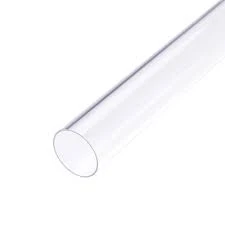Okt . 30, 2024 22:36 Back to list
hdpe tube
Understanding HDPE Tubes Properties, Applications, and Benefits
High-Density Polyethylene (HDPE) tubes are gaining significant popularity in a variety of applications due to their unique properties and advantages. As a thermoplastic polymer produced from the polymerization of ethylene, HDPE possesses a high strength-to-density ratio, making it a preferred material for many industries. This article will delve into the characteristics, applications, and benefits of HDPE tubes.
Properties of HDPE Tubes
One of the standout features of HDPE is its impressive chemical resistance. It can withstand a wide range of acids and bases, making it suitable for transporting harsh chemicals without the risk of degradation. Additionally, HDPE tubes are known for their high tensile strength, which allows them to endure high pressure and heavy loads. The material is also resistant to impact and stress cracking, further enhancing its reliability in various applications.
Moreover, HDPE has a low moisture absorption capacity, which prevents water from penetrating the material. This property ensures that the structural integrity of the tubes remains intact, free from swelling or corrosion over time. HDPE tubes are lightweight and flexible, which facilitates ease of installation and transportation, particularly in challenging environments. Furthermore, they can be manufactured in different colors and diameters, allowing for customization to meet specific user requirements.
Applications of HDPE Tubes
The versatility of HDPE tubes means they are used in numerous sectors, including agriculture, construction, and waste management. In agriculture, HDPE tubes are commonly used for irrigation systems due to their resistance to water and nutrients, making them an excellent choice for drip irrigation and sprinkler systems.
hdpe tube

In the construction industry, HDPE tubes serve as conduits for electrical cables and telecommunications wiring due to their ability to shield the cables from moisture and chemicals. They are also used for drainage systems, offering efficient water management solutions in urban environments.
Additionally, HDPE tubes are extensively utilized in the manufacturing of containers and packaging materials. Their robustness and impermeability make them ideal for storing and transporting a variety of goods, including liquids and hazardous materials.
Benefits of Using HDPE Tubes
The benefits of using HDPE tubes are numerous. First and foremost, their durability ensures long-term performance, reducing the need for frequent replacements. This durability translates into cost savings for businesses that rely on HDPE tubes for their operations.
Moreover, HDPE is an environmentally friendly material, as it is recyclable. At the end of their life cycle, HDPE products can be reprocessed into new products, contributing to a circular economy and reducing environmental impact.
Another significant benefit is their resistance to UV radiation, which allows HDPE tubes to maintain structural integrity even when exposed to sunlight over extended periods. This makes them an ideal choice for outdoor applications.
In conclusion, HDPE tubes are an incredibly versatile and durable solution for a range of applications. Their resistance to chemicals, moisture, and impact, combined with their lightweight nature and recyclability, makes them a preferred choice across various industries. As industries continue to seek sustainable and effective materials, the relevance of HDPE tubes is only set to increase in the coming years.
-
Durable HDPE Sheet | Versatile & Impact-Resistant Plastic
NewsAug.13,2025
-
Premium PVC Soft Sheets: Clear, Flexible & Durable
NewsAug.12,2025
-
Premium PVC Round Rods: Durable, Chemical Resistant, Easy to Machine
NewsAug.11,2025
-
PP U-channel: Chemical-Resistant, Lightweight & Durable
NewsAug.10,2025
-
Transparent PVC Pipe: Clear Flexible Tubing for Fluids
NewsAug.09,2025
-
Durable PP Rigid Sheet: Versatile & High-Quality Plastic Panels
NewsAug.08,2025

